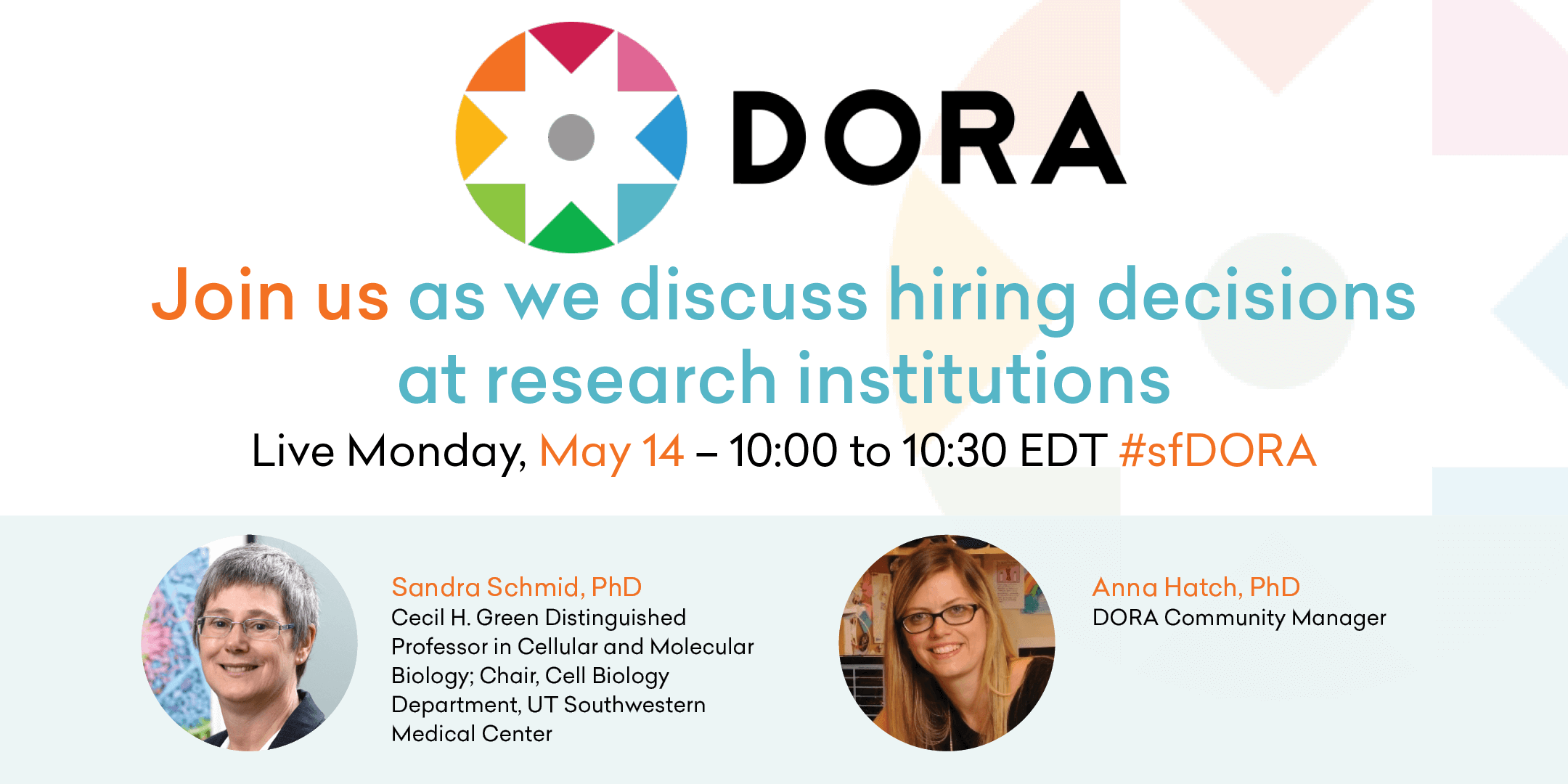
On Monday May 14, we launched an interview series on research assessment to mark the fifth anniversary of the Declaration on Research Assessment. Our first interview was with Dr. Sandra Schmid, Cecil H. Green Distinguished Professor in Cellular and Molecular Biology and Chair of the Cell Biology Department at UT Southwestern Medical Center about her forward-thinking approach to junior faculty that she recently described in an MBoC perspective piece.
Approximately seven years ago, Schmid moved to UT Southwestern Medical Center with an opportunity to expand the Cell Biology Department. During this intense hiring period, Schmid realized that one of the reasons faculty searches failed was because of competition with other universities who were recruiting the same candidates.
“What I decided was to never hire by committee again,” said Schmid, emphasizing that everyone in her department is now engaged in the hiring process. Faculty members are assigned to review applications based on a series of alphabet letters that correspond to the last names of the candidates, rather than matching them by scientific interests. For their part, applicants are asked to pay serious attention to the cover letter, which plays a crucial initial role in determining if an applicant could be successful in the department.
The next step in the process is a Skype interview with Schmid and a small number of faculty. “Only one faculty member of the whole department has to tag someone to be interviewed, and we interview them,” Schmid explained. As many as 28 candidates have been interviewed on Skype for a single faculty search. Candidates are given questions beforehand, so they have time to reflect. The goal is to identify thoughtful individuals, in addition to candidates who process information quickly.
The Skype interviews reveal a lot. Candidates convey their scientific vision, provide a sense of how large they think, and if they have given serious consideration about working in the department. When the faculty meets to select individuals for on-campus interviews, each candidate has a designated faculty advocate who attended the Skype interview.
According to Schmid, “The best predictor of future success is past success.” She looks for significant, important, and rigorous contributions to the body of knowledge. A series of publications can have the same amount of value as a single paper published in a high-profile journal. Schmid also noted that she hired a candidate based on work they published as a preprint on BioArxiv.
Schmid finds that the new process engages faculty better and reaches candidates who would not previously have been considered. The Skype interview enables discovery of achievements that might not have been listed on the CV or formal application. Topics and attitudes come up in conversations that are difficult to get from reading the application alone.
All scientists can improve the culture around research assessment. Schmid challenged the interview audience to be vocal when they see bad practices. When she found Journal Impact Factors listed on grant applications that she was reviewing for the Weizmann Institute, Schmid reached out to senior leadership at the Institute and received a positive response about discontinuing the practice.

